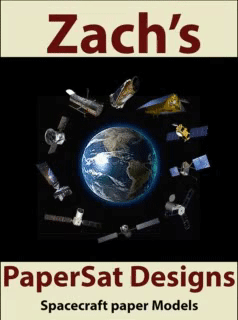
Other Paper Model Websites
Other Paper Models
My other paper model designs, some are related to Astronomy and space exploration
and some are not, enjoy.
1
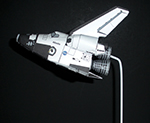 2
2
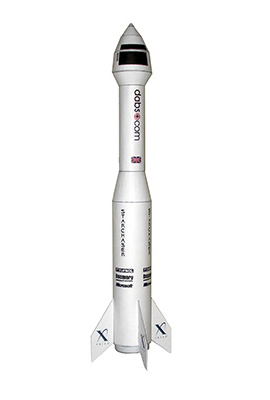 3
3
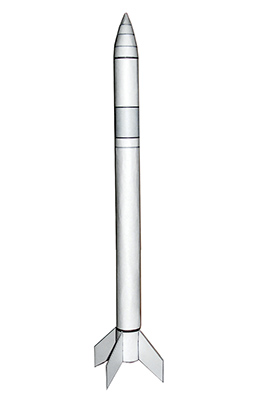 4
4
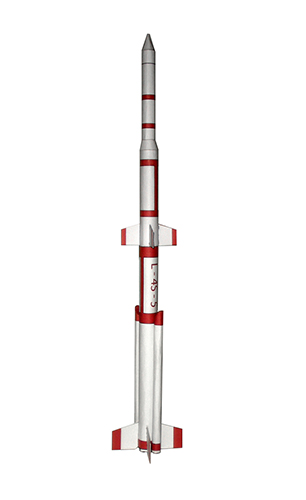 5
5
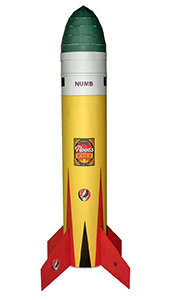
1..Compact Space Shuttle -
If NASA builds an economy-sized space shuttle with better gas milage, it could
look like this. This is a fun model to build and enjoy.
Download
2..Nova Starchaser 4 -
At 37 feet long, 4 feet in diameter, Starchaser's Nova 4 rocket is the largest ever launched from
the UK. Launched On 22 November 2001, from Morecambe Bay as a full-scale test of rocket systems.
Download
3..SPARK, or Spaceborne Payload Assist Rocket - Kauai -
Also known as Super Strypi. The first rocket launched in Hawaii that took place on November 3, 2015.
The first flight of an experimental U.S. military rocket designed for low-cost, quick-reaction
satellite launches ended in failure over Hawaii, destroying 13
small spacecraft clustered on the mission for NASA researchers and university students.
Download
4..Lambda 4S-5 -
The Lambda 4S or L-4S was a 4-stage experimental Japanese expendable carrier rocket.
launched five times between 1966 and 1970 with Osumi technology demonstration satellites. The first four launches
failed, however the fifth (L-4S-5), launched on 11 February 1970, successfully placed Ohsumi (Osumi-5),
the first Japanese satellite, into orbit.
This vehicle had no on board guidance system and is, to date, the smallest ground based
launch vehicle to place a satellite into orbit. This vehicle provides some interesting
lessons to those with small launch vehicle orbital aspirations.
Download
5..1st Beer Keg Rocket -
In 2008 Team Numb successfully launched and recovered the 1st ever Beer Keg Rocket.
This was an 11 ft tall, 350 lb rocket and the payload was a full, 15-gal keg of Portland's
finest beer. they sent the beer keg to over 6,200 ft!
The rocket was built of..175 lbs of beer.
60 lbs of Alumaflame solid rocket propellant (looks like gray styrofoam, but burns in a violet flame).
6,200 ft. Perfect flight.
Beer shaken, not stirred, and tapped at the landing site.
The donut stayed on the nosecone for a surprisingly long time.
Download
6
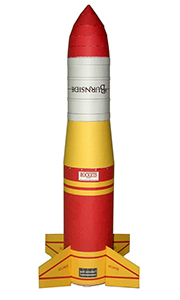 7
7
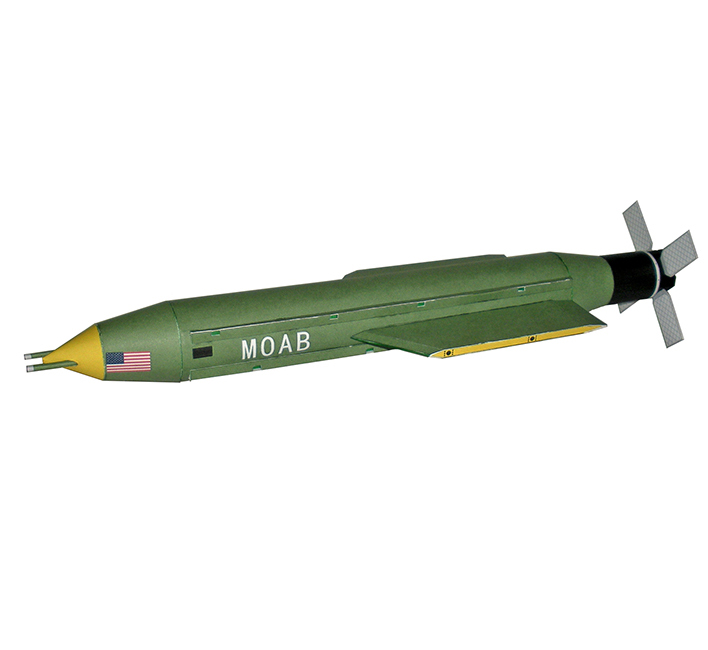 8
8
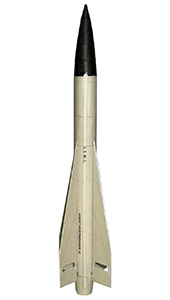 9
9
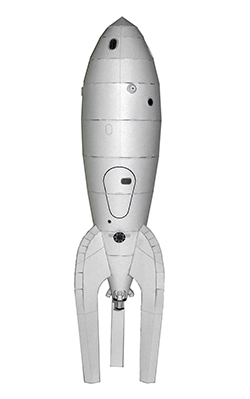 10
10
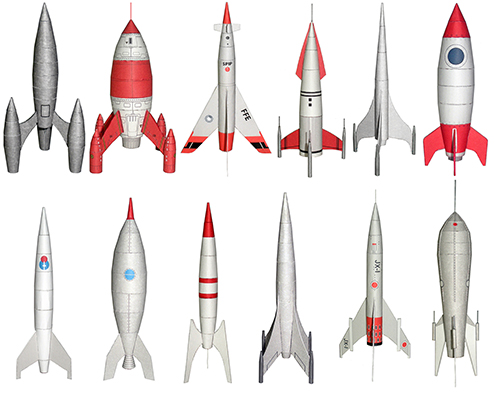
6..2nd Beer Keg Rocket -
In 2012, they did it again. This time on a bigger motor and a more refined design,
the beer keg went to over 7,700 ft!
Download
7..MOAB -
(Massive Ordnance Air Blast, more commonly known as the Mother of All Bombs).
The MOAB is the most powerful conventional bomb ever used in combat as measured by the weight of
its explosive material (it was touted as the most powerful
non-nuclear weapon in the American arsenal).Its principal effect is a massive blast wave -
said to stretch for a mile in every direction -
created by 18,000lb of TNT.The MOAB was first dropped in combat in the 13 April 2017 airstrike
against Islamic State of Iraq and the Levant (ISIL) militants in Afghanistan.
Download
8..Raytheon MIM-23 Hawk Missile -
The HAWK (Homing All the Way Killer) MIM-23 was the first mobile medium-range guided anti-aircraft
missile deployed by the U.S. Army, and was the oldest SAM system still in use by U.S. armed
forces in the late 1990s.The MIM-23Hawk was superseded by the MIM-104 Patriot in US Army service by 1994.
Download
9..Raygun Gothic Rocketship -
Raygun Gothic is a catchall term for a visual style that incorporates various aspects of the
Googie, Streamline Moderne and Art Deco architectural styles when applied to retrofuturistic
science fiction environments.At 40 feet tall and weighing 13,000 lbs, this aluminum and steel feat of engineering
evokes the pop culture imagery of 1930's and 40's science fiction.
It was constructed in 2009 at San Francisco.Visitors can to climb up through the three
compartments and then go down via the gantry of the statute.
Download
10..Retro Rocketships -
1940's - 1960's style rockets with a "modern" flare as depicted in the movies.
This kit contains 12 paper models to enjoy.
Download
11
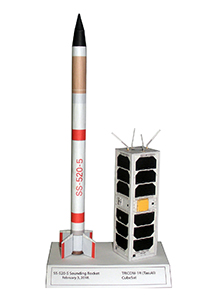 12
12
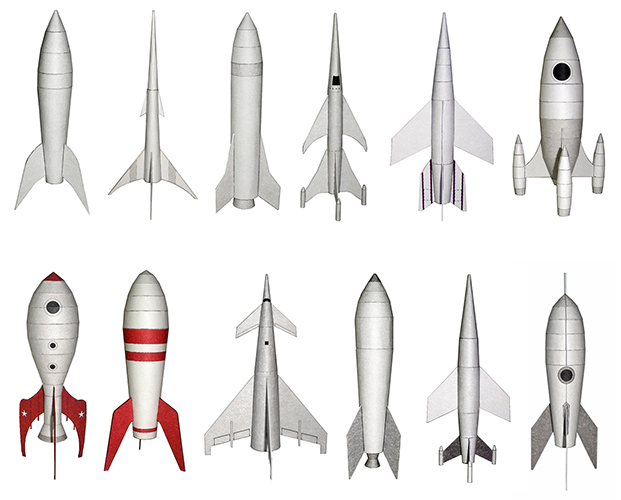 13
13
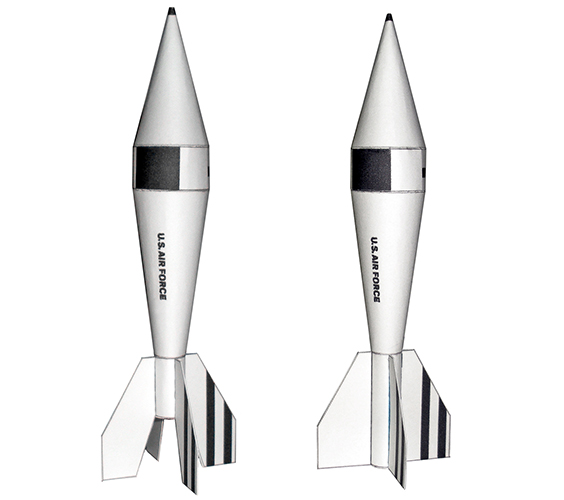 14
14
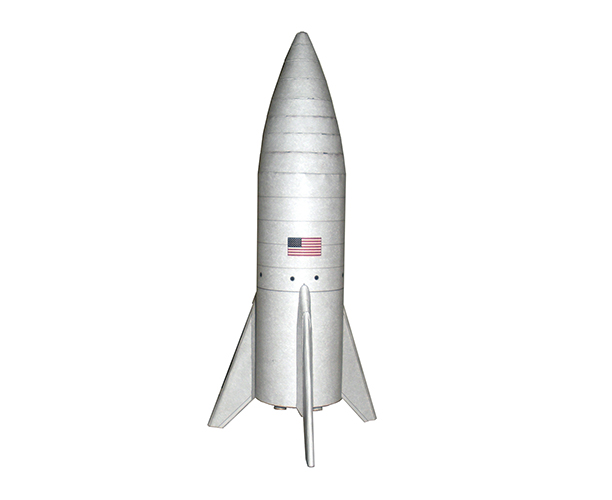
11..SS-520-5 with TRICOM-1R Cubesat -
When Japan's SS-520-5 rocket successfully placed the TRICOM-1R (Tasuki) cubesat into orbit,
It become the smallest and lightest vehicle to ever put an object in orbit.
Launched on February 3, 2018.
Download
12..Retro Rocketships 2 -
1940's - 1960's style rockets with a "modern" flare as depicted in the movies.
This kit contains 12 more paper models to enjoy.
Download
13..USAF mystery missile -
Can you help identify this rocket? It is an Air Force unidentified
prototype flown from White Sands Missile Range.
It is a very unique looking rocket, so I designed a model of it.
Because some of the lower body and fins are
shrouded in smoke in the only photo found, I made two versions of the model with different lower
sections, one of them should be close to resemble the real thing.
Download
14..SpaceX Starhopper rocket -
This is a prototype built "for suborbital (vertical take-off and landing) tests" to prove that the
future world's biggest-ever spaceship can both launch from and land back on Earth, just like SpaceX's smaller
Falcon 9 and Falcon Heavy rockets. The 120-foot tall prototype is set to begin inaugural hop tests as
soon as March or April of 2019.
Download
15
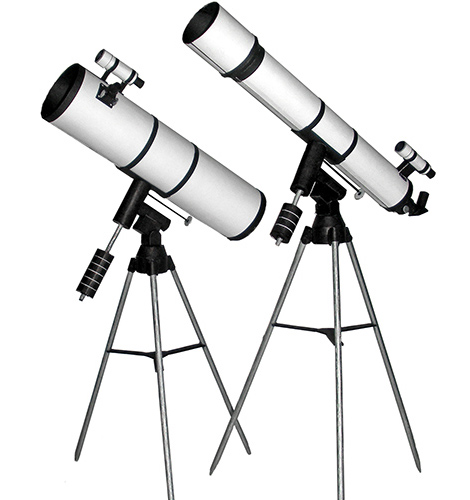 16
16
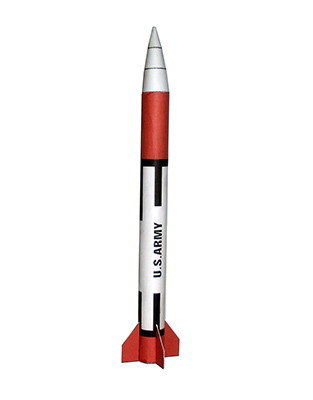 17
17
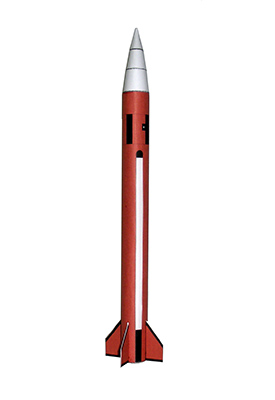 18
18
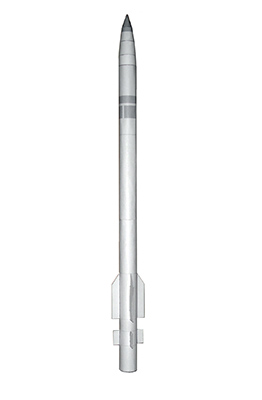 19
19
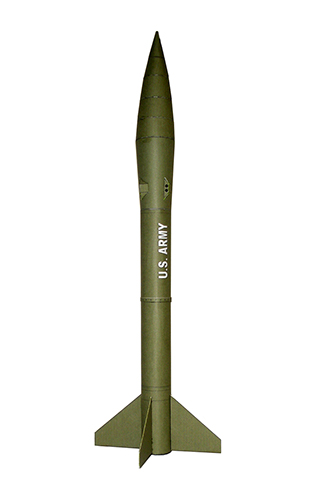
15..Paper Telescopes -
Nice paper models of the reflecting and refracting telescopes. This kit contains both models.
Download
16..MIM 104A patriot Missile -
This was the initial "Standard" missile (still known as "Standard" today).
In Patriot's early days, the system was used exclusively as an anti-aircraft weapon,
with no capability against ballistic missiles. This was remedied during the late 1980s when
Patriot received its first major system overhaul with the introduction of the
Patriot Advanced Capability missile and concurrent system upgrades.
Download
17..MIM 104C patriot Missile (PAC 2) -
PAC-2 was first tested in 1987 and reached Army units in 1990, just in time for deployment to
the Middle East for the Persian Gulf War. It was there that Patriot was first regarded as a successful
ABM system and proof that ballistic missile defense was indeed possible.
The complete study on its effectiveness remains classified.
Download
18..MIM 104F patriot Missile (PAC 3) -
The PAC-3 upgrade is a significant upgrade to nearly every aspect of the system.
It took place in three stages deployed in 1995, 1996 and 2000, and units were designated Configuration 1, 2, or 3.
The PAC-3 Missile Segment Enhancement (MSE) interceptor increases altitude and range through a more
powerful dual-pulse motor for added thrust, larger fins that collapse inside current launchers,
and other structural modifications for more agility. The U.S. Army accepted the first PAC-3 MSE
interceptors on 6 October 2015. Initial Operational Capability (IOC) for the PAC-3 MSE interceptor
was declared in August 2016.
Download
19..Honest John M-31 Missile -
The MGR-1 Honest John rocket was the first nuclear-capable surface-to-surface missile in the
United States arsenal. Designated Artillery Rocket XM31, the first such rocket was tested
June 29, 1951 and the first production rounds were delivered in January 1953. The designator was
changed to M31 in September 1953. The first Army units received their rockets by year's end and
Honest John battalions were deployed in Europe in early 1954.
Alternatively, the rocket was designed to be capable of carrying an ordinary high-explosive
warhead weighing 680 kilograms (1,500 lb), even though that was not the primary purpose for
which it was originally envisioned.
Download
20
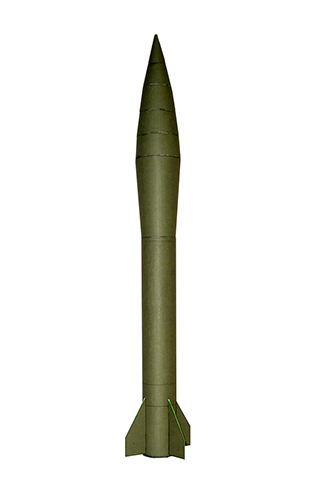 21
21
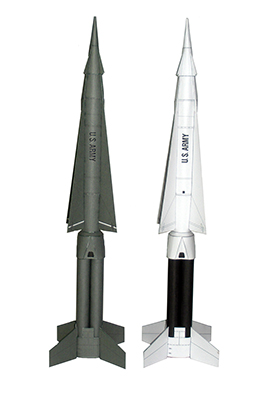 22
22
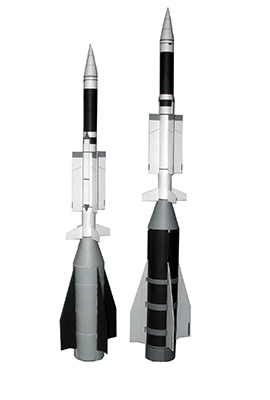 23
23
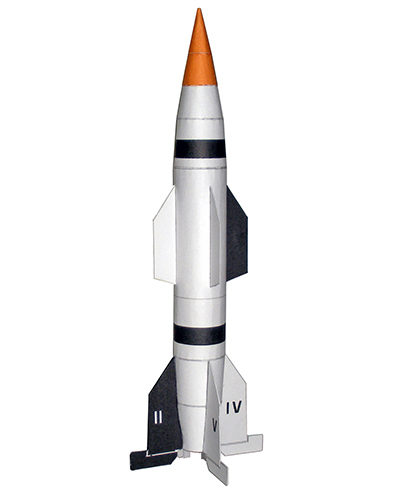 24
24
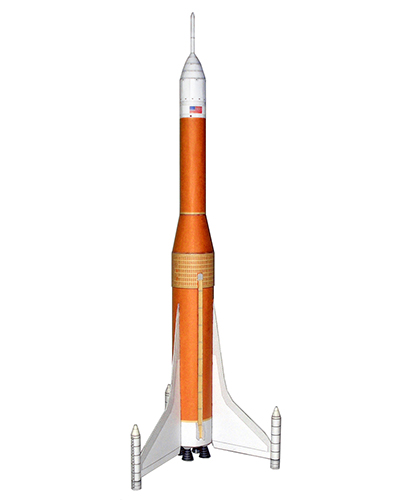
20..Honest John M-50 Missile -
Upgraded Honest John, M-50, was undertaken to improve accuracy and extend range.
The size of the fins was greatly reduced to eliminate "weathercocking"
(the tendency of crosswinds to turn a rocket to face into the wind).
Download
21..Nike Hercules missiles -
The Nike Hercules (MIM-14) was a surface-to-air missile (SAM) used by
U.S. and NATO armed forces for medium- and high-altitude long-range air defense. It was normally armed with
the a nuclear warhead, but could also be fitted with a conventional warhead for export use.
Hercules was developed as the successor to the earlier MIM-3 Nike Ajax,and at its peak it was
deployed at over 130 bases in the US alone. Hercules remained the US' primary heavy SAM until it began to be replaced
by the higher performance and more mobile MIM-104 Patriot in the 1980s.
The last Hercules missile was launched in the Sardinian range of Capo San Lorenzo in Italy on November 24, 2006.
NOTE: There are 5 variations of the Nike Hercules models:
The U.S. in white and Green -
Download
as deployed in the Netherlands -
Download
Germany -
Download
Taiwan -
Download
22..Aster 15 and 16 missiles -
The cornerstone of Europe's naval and land-based air defence programmes.The Aster missile family
comprises Aster 15 for short to medium range and Aster 30 for short to long range.
Aster missiles are in service on the latest vessels brought into service by three of Europe's
major navies: Italy, France and the United Kingdom. Aster missile naval air defence systems are
also in service with several other navies around the world.
NOTE: This kit contains both models.
Download
23..Hermes A-1 Missile-
Hermes was the Army's second missile program. In May 1944 the Army contracted with the California Institute of
Technology's Guggenheim Aeronautical Laboratories to start the ORDCIT Project to research, test and develop
guided missiles.
The Hermes project (November 15, 1944 - December 31, 1954) was started in response to Germany's rocket
attacks in Europe. Project Hermes was to determine the missile needs of army field forces.
Download
24..SLS Retro Rocket Ship -
What would the SLS (Space Launch System) look like if it was designed and built like a 1960's retro rocket ship?
It could look like the model you're about to build.
I have captured the look of a retro rocket ship and the SLS combined with a touch of the retired shuttle program.
Many features on the SLS was used for this model, a few have been left out because they were not commonly
found on retro rocket ships - enjoy.
Download
25
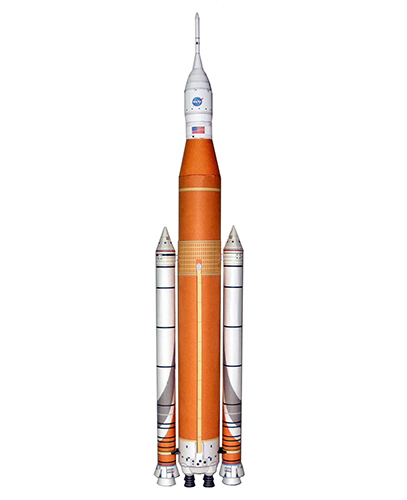 26
26
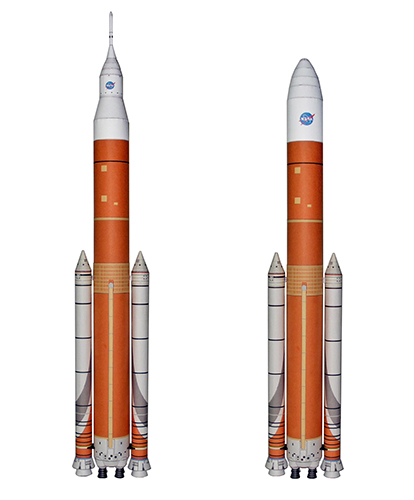 27
27
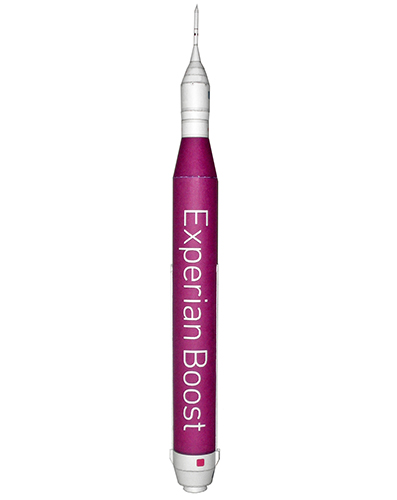 28
28
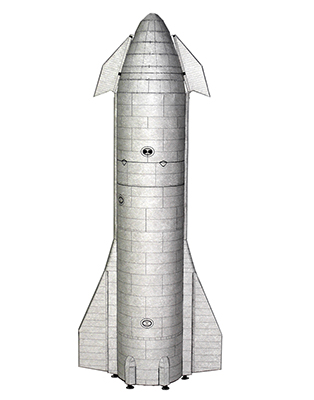 29
29
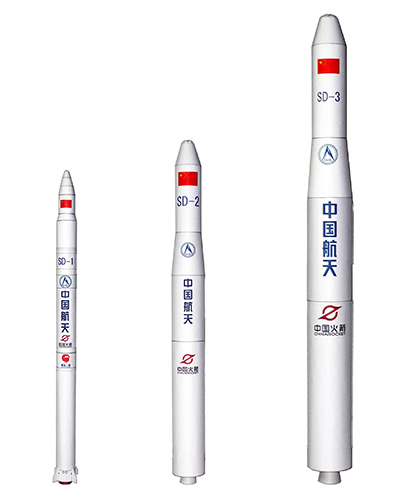
25..SLS ((Space Launch System) Block 1 -
The Space Launch System rocket (SLS) will be NASA's next program that replaces the retired
Space Shuttle. The SLS is a Space Shuttle derived heavy expendable launch vehicle that follows
the cancellation of the Constellation program and is to replace the retired Space Shuttle.
It will be the most powerful rocket ever built wth about 20% more thrust than the Saturn V and
a comparable payload capacity, putting SLS into the Super heavy lift launch vehicle class.
It is a primary part of NASA's deep space exploration plans, including the planned Orion Program crewed
missions to the Moon and Mars. The SLS is scheduled for launch in the mid 2020's.
Download
26..SLS Block 1B Crew and Cargo -
The next phase of the SLS program to launch heavier payloads into space.
Download
27..Experian Boost Rocket -
Experian Boost is a free, opt-in product designed to help individuals struggling with building credit.
Consumers can use the tool to add more information to their credit history in order to potentially generate a higher
credit score. It is a product of Experian, one of the three major credit reference companies in the United States.
One of the Experian commercials featured a rocket being launched. The rocket looked similar to the
SLS (Space Launch System) without the two solid rocket boosters.
In this commercial, Experian says they are launching something revolutionary. With Experian Boost, you can raise
your credit score instantly. It urges you to be the first on board to get ready to boost your credit scores free.
Thought this would make a fun model build and enjoy.
Download
28..SpaceX Starship MK1 Prototype -
an orbital-scale prototype of the spacecraft that eventually will use as a fully reusable commercial
spaceflight. Starship is the key ingredient not only to fully reusable launch and cargo
vehicles for serving commercial clients; it's also the next most important step in SpaceX and Elon Musk's audacious plan to
get humans to Mars.This prototype was unvailed on September 28, 2019.
NOTE: this kit contains both the regular paper model version and the metallic paper versions.
Download
29..Jielong-1-3 (Smart Dragon-1-3)-
Jielong-1 is a new-small four stage solid-propellant rocket developed by the China Rocket Co. Ltd. affiliated to the China Academy of Launch Vehicle Technology
(CALVT). Smart Dragon-1 can be produced from order to launch within six months and requires only a 24
hour checkout at the launch site. First launch took place on August 17, 2019.
Jielong-2 (Smart Dragon-2)-slightly larger version. Jielong II plans to complete the first flight test in 2020, and will
strive to achieve an annual launch capability of 8 to 10 rounds in the future.
Jielong-3 (Smart Dragon-3)- Jielong III intends to complete the first flight test in 2021, and will strive to
achieve a launch capacity of 5 to 8 rounds per year in the future.
NOTE: this kit contains all three models.
Download
30
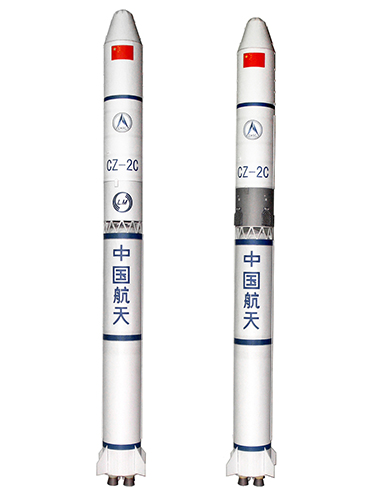 31
31
 Models.jpg) 32
32
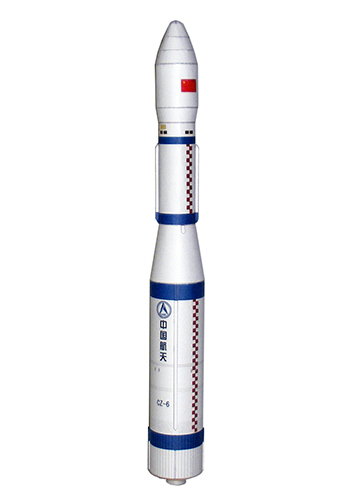 33
33
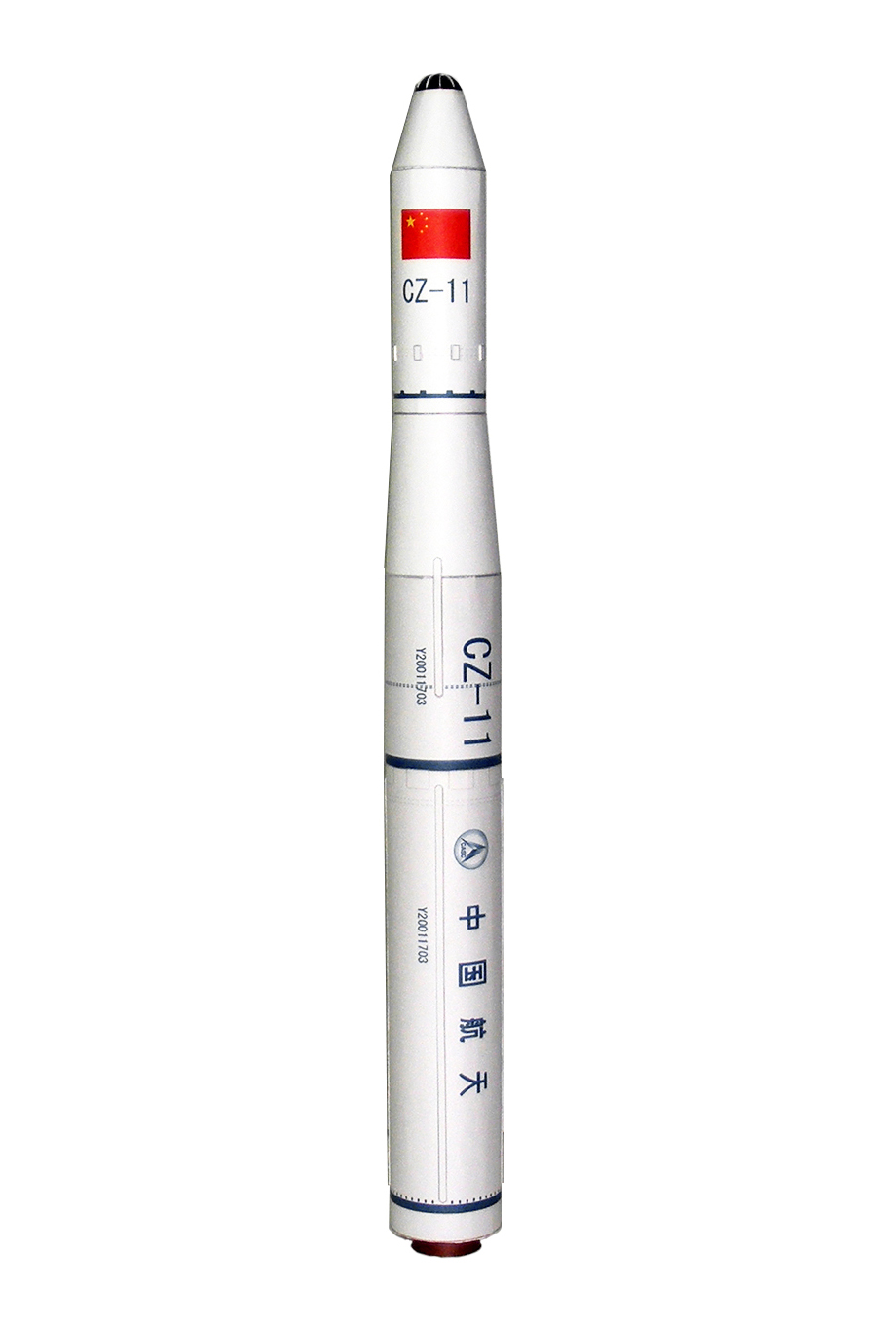 34
34
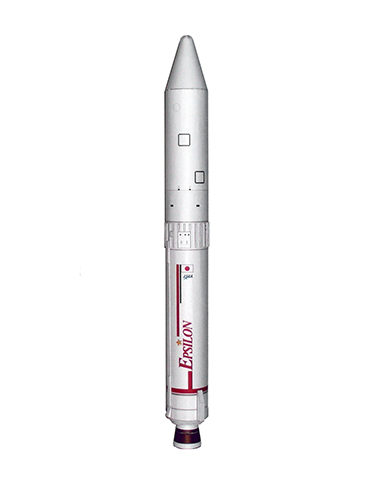
30..Long March 2C (LM-2C), or Chang Zheng 2C (CZ-2C) -
Is a Chinese launch vehicle and a member of the Long March 2
rocket family, an expendable launch system operated by the People's Republic of China. The first launch occurred on September 9,
1982. It is a two-stage launch vehicle with storable propellants, consisting of Nitrogen Tetroxide and Unsymmetrical
Dimethylhydrazine. The rocket was derived from the Long March 2A launch vehicle.
Several variants of this launch vehicle have been built, all using an optional third solid motor stage.
Long March 2C with actuating grid fins - The Long March 2C sporting its new grid fins was launched from the Xichang Satellite
Launch Center on Friday, July 26, 2019.
NOTE: this kit contains both models.
Download
31..Long March 2C (LM-2C), or Chang Zheng 2C (CZ-2C) Easy Versions -
Easier versions of the Chines rockets with less cutting and parts.
NOTE: this kit contains both models.
Download
32..Long March 6 or Chang Zheng 6-
is a Chinese three-stage liquid-fuelled carrier rocket of theLong March family and made its maiden flight in 2015.
As one of the new generation rocket family, the Long March 6 was designed to be a light capacity, "high-speed response"
rocket, complementing the heavy lift Long March 5 and the mid-heavy lift Long March 7 rocket families.
Download
33..Long March 11 or Chang Zheng 11-
is a small four-stage, solid-fuelled quick-reaction launch vehicle developed by the China
Academy of Launch Vehicle Technology (CALT) to provide an easy to operate quick-reaction launch vehicle, that can
remain in storage for long period and to provide a reliable launch on short notice.
LM-11's first launch took place on September 25, 2015 and can also be launched from a maritime launch platform using the CZ-11H version.
Download
34..Epsilon-1 -
The first of the Japan Aerospace Exploration Agency's (JAXA)
new generation of rockets, was launched from the Uchinoura Space Center in Kagoshima Prefecture in
September 2013.Epsilon (a 3-stage rocket that uses solid fuel similar to gunpowder) incorporates the latest technology and has been designed to significantly cut costs by reforming the
rocket's launch mechanism, which previously required the involvement of a large number of people. A "future"
where mankind can "cheaply, quickly, and easily" advance the development of space.
Download
35
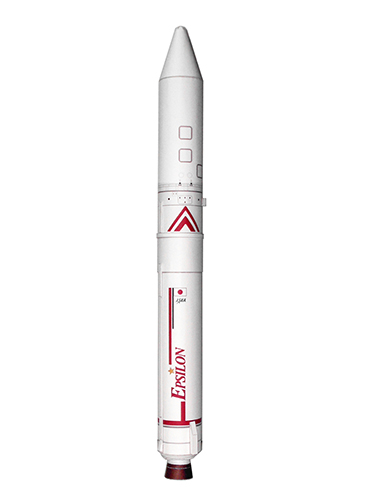 36
36
 Model.jpg) 37
37
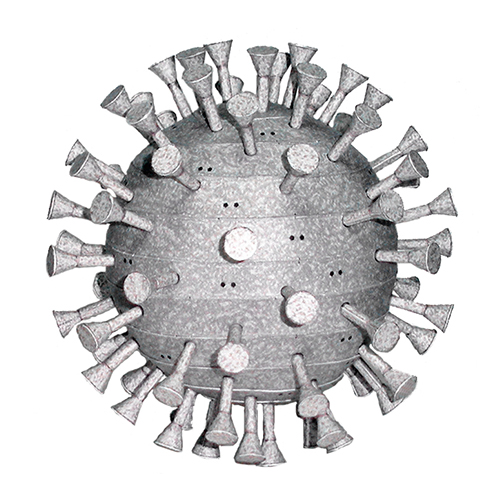 38
38
 Model.jpg) 39
39
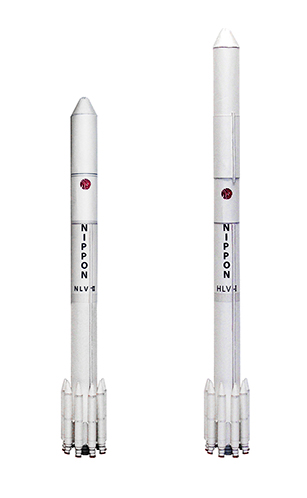
35..Enhanced Epsilon (Epsilon-2) -
A beefed up version of Japan's Epsilon Rocket sporting more powerful rocket stages and structural improvements.
First launched on December, 2016.
Download
36..ROHINI-75 (RH-75) -
The first sounding rocket developed by India and was launched from TERLS on November 20, 1967. It
weighed 32 kilograms (71 lb), had a diameter of 75 millimetres (3.0 in) and flew 15 times between November 1967
and September 1968.
Download
37..Covid-19 (Coronavirus disease 2019) -
is an infectious disease caused by severe acute respiratory syndrome
coronavirus 2 (SARS-CoV-2). The disease was first identified in December 2019 in Wuhan, the capital of
China's Hubei province, and has since spread globally, resulting in the ongoing 2019-20 coronavirus pandemic.
Download
38..KT-1 (Kaituozhe-1) -
Kaituozhe-1 (KT-1) was small, solid fueled launch vehicle based on the road mobile DF-21 IRBM with an additional
upper stage (in total 4 stages). It was 13.6 meters in length and 1.4 meters in diameter, with launch mass of 20t. It
was possible to launch KT-1 both from a truck-based platform or from airborne platform.
Download
39..N-II and H-I rockets -
N-II rocket is three-stage launch vehicles employing the U.S "Thor-Delta Rockets" technology and used for
launching experiments, communications, broadcasting, meteorological and earth observation satellites. N-II was
utilized in a total of 8 launches from 1981 to 1987.
The H-I or H-1 was a Japanese liquid-fuelled carrier rocket, consisting of a American first stage
a set of booster rockets, and all-Japanese upper stages. It was launched nine times between August 1986 and February 1992.
All were successful. H-1 provided a substantial payload increase over N-2 and served as a stepping stone to Japan's subsequent home-
built H-2 launch vehicles that first flew in February 1994.
NOTE: This kit contains both launch vehicles.
Download
40
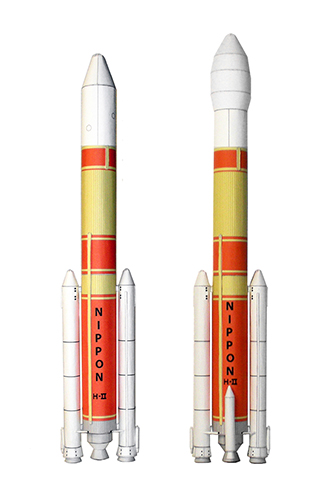 41
41
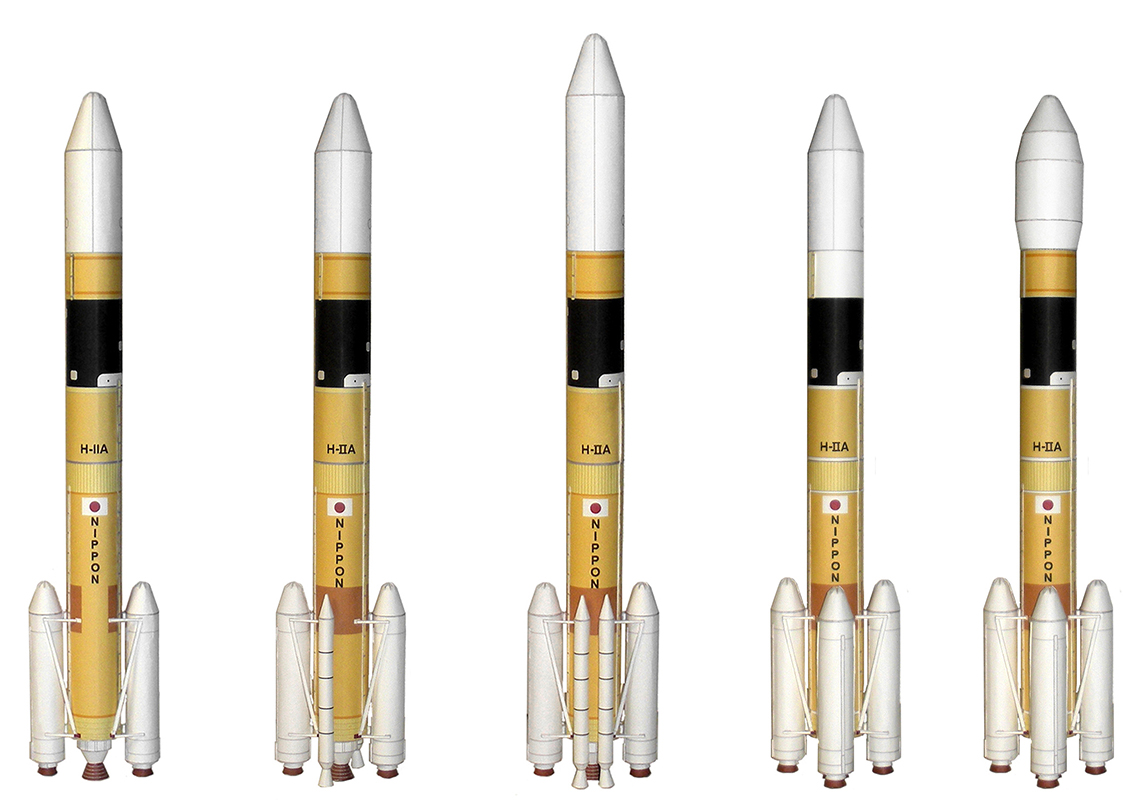 42
42
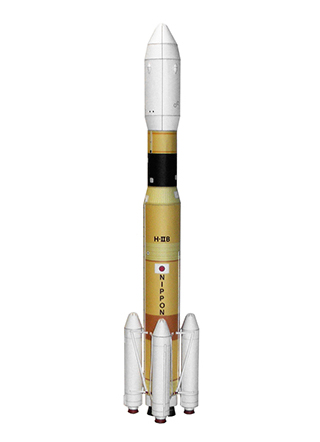 43
43
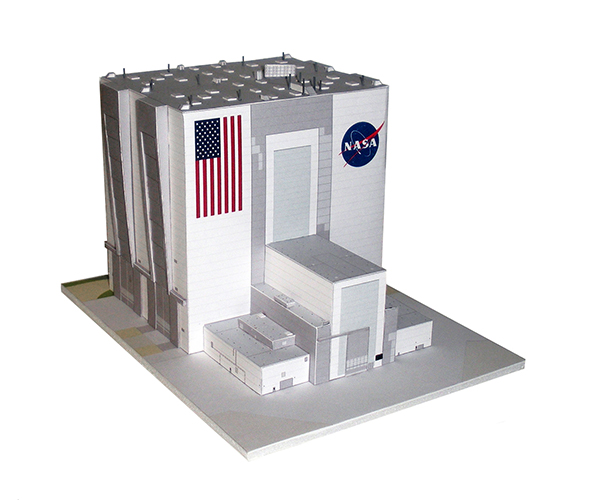
40..H-II and H-II with SSB rockets-
The H-II (H2) rocket was a Japanese satellite launch system, which flew seven times between 1994 and 1999, with
five successes. It was developed by NASDA in order to give Japan a capability to launch larger satellites in the
1990s. It was the first two-stage liquid-fuelled rocket Japan made using only technologies developed domestically.
The launch capability of an H-IIA launch vehicle can be enhanced by adding the Castor 4AXL solid strap-on booster
(SSB) to its basic configuration. The H-II was superseded by the H-IIA rocket.
NOTE: This kit contains both the H-II and H-II with SSB models.
Download
41..H-IIA family -
The H-IIA launch vehicle is the workhorse that has provided Japan with reliable, independent and guaranteed access to
space since 2001.. It was developed based on technologies of H-II, Japan's first 100%
domestically manufactured launch vehicle. H-IIA has launched various satellites and space probes,
boasting its high reliability of 97% launch success rate and low costs.
The launch capability of an H-IIA launch vehicle can be enhanced by adding SRB-A solid rocket booster (SRB)
and Castor 4AXL solid strap-on booster (SSB) to its basic configuration.
Download the H-IIA 202 model
Here.
Download the H-IIA 2022 and 2024 models
Here.
Download the H-IIA - 204 and H-IIA - 204 with 5S Fairing models
Here.
42..H-IIB rocket -
The H-IIB launch vehicle is a heavier version compared to the H-IIA launch vehicle. Based on the technology of the H-IIA,
has achieved vastly increases in its launch capacity through enhanced rocket engine propulsion power and larger satellite
fairing. The H-IIB launch vehicle launches the H-II Transfer Vehicle (HTV) as one of transportation to the International Space
Station (ISS).
Download
43..KSC vehicle assembly building -
is the only facility where assembly of a rocket occurred that carried humans beyond low-Earth orbit and on to
the Moon. The VAB, which was completed in 1966, was originally built to allow for the vertical assembly of the Saturn V rocket
for the Apollo program and referred to as the Vertical Assembly Building. In anticipation of post-Saturn projects such
as the Space Shuttle program, it was renamed the Vehicle Assembly Building in 1965, and was used for the
Shuttle's external fuel tanks and flight hardware, and to mate the Space Shuttle orbiters to their solid rocket
boosters and external fuel tanks. Once assembled, the complete Space Shuttle was moved on the mobile launcher
platform and crawler-transporter to LC-39A or LC-39.
The VAB will be used for assembly and processing of any future vehicles utilizing Launch
Complex 39. Work is on the way getting the VAB ship-shape (or "spaceship-shape") to process the new launch vehicles (SLS).
The VAB is one of the largest buildings in the world by area, the VAB covers eight acres, is 525 feet tall and
518 feet wide. The VAB high bay doors are the largest in the world at 456 feet high and take about 45 minutes to
completely open or close.
Download
44
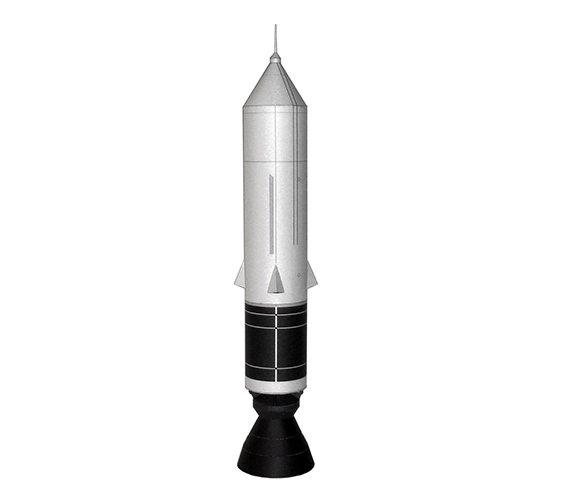 45
45
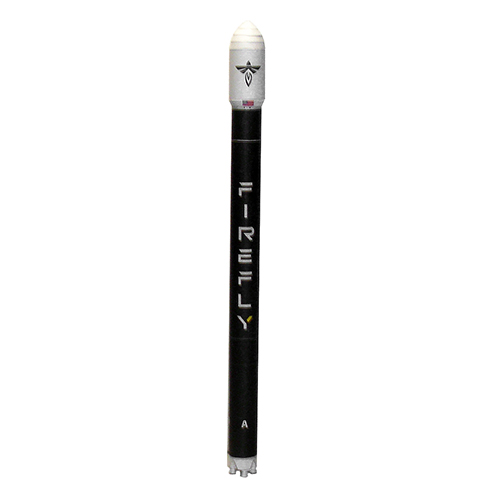 46
46
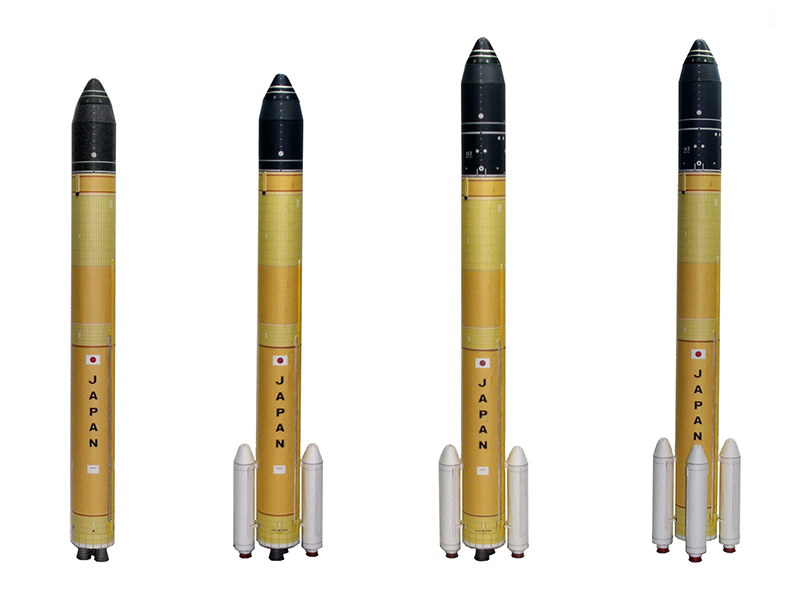 47
47
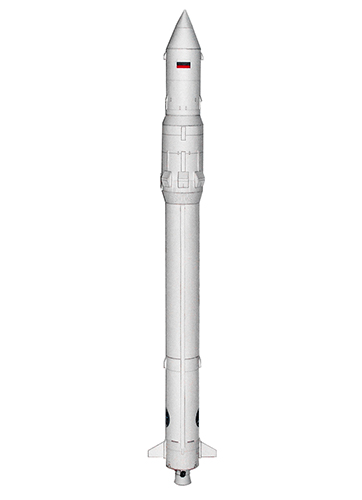
44..Sea Dragon rocket concept-
Sea Dragon was a 1962 conceptualized design study for a two-stage sea-launched orbital super heavy-lift
launch vehicle. The project was led by Robert Truax while working at Aerojet, one of a number of designs he
created that were to be launched by floating the rocket in the ocean. Although there was some interest at
both NASA andTodd Shipyards, the project was not implemented.
At the massive dimensions of 150 m (490 ft) long and 23 m (75 ft) in diameter, Sea Dragon would have been the
largest rocket ever built.
Download
45..Firefly Alpha rocket-
Firefly Alpha (Firefly a) is a two-stage orbital expendable launch vehicle developed by the American aerospace
company Firefly Aerospace to cover the commercial small satellitelaunch market. Alpha is intended to provide
launch options for both full vehicle and ride share customers.
The first launch of Alpha is currently planned for mid-June 2021.
Download
46..H3 Family of launch vehicles-
The development of the H3 launch vehicle, as Japan's next flagship launch vehicle replacing
the H-IIA/H-IIB, started in 2014. MHI, as the primary contractor, has organized the vehicle
development and is proceeding with the development of the engine system in cooperation with
Japan Aerospace Exploration Agency (JAXA).
The primary objectives of the H3 launch vehicle are to ensure "assured access to space" and
"competitiveness in the global commercial market." It is intended that aerospace industrial base is
maintained and strengthened by ensuring sales for a constant number of vehicles including
commercial satellite launches.
The H3 Launch Vehicles are liquid-propellant rockets with strap-on solid rocket boosters and are planned to
be launched from Tanegashima Space Center in Japan. The first H3 is planned to be launched in the fiscal
year 2021.
As of November 2018, three configurations are planned: H3-30, H3-22, and H3-24.
Download the H3-30 model
Here
Download the H3-22 models (long and short fairings)
Here
Download the H3-24 model
Here
47..Angara - 1.2pp -
The Angara is the first new rocket built by Russia since the end of the Soviet Union, and is intended
to replace several older rockets including the Proton-M, Zenit and Rokot, as well as ensure
independent Russian access to geosynchronous orbit from Plesetsk.
The new family of rockets uses environmentally-friendly propellant components.
Angara - 1.2pp made Angara's inaugural suborbital flight on July 9, 2014. This flight lasted 22 minutes and
carried a mass simulator weighing 1,430 kg (3,150 lb).
Download
48
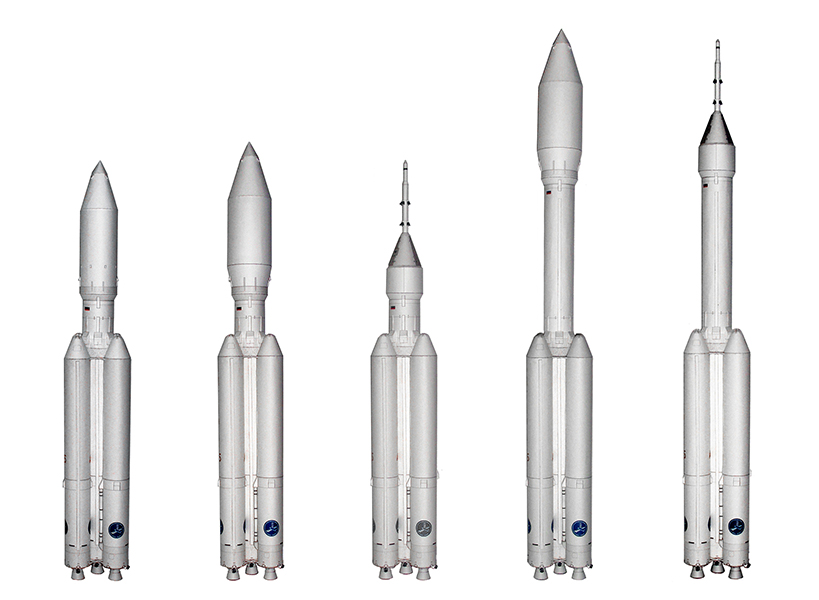 49
49
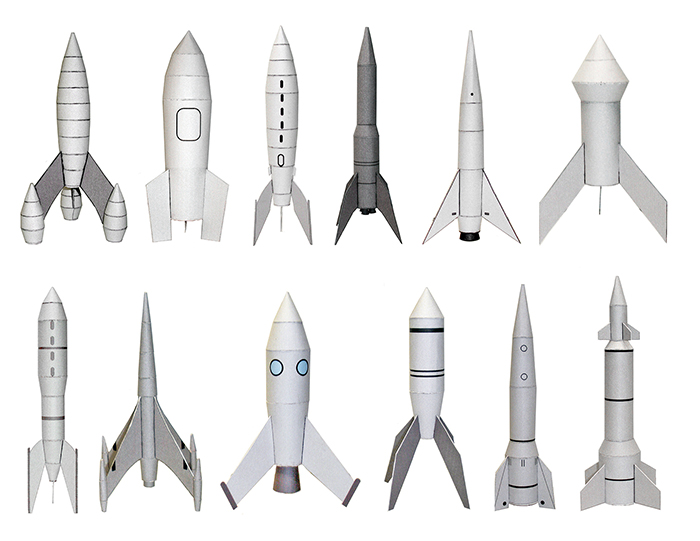 50
50
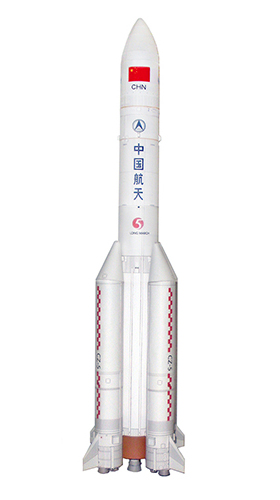 51
51
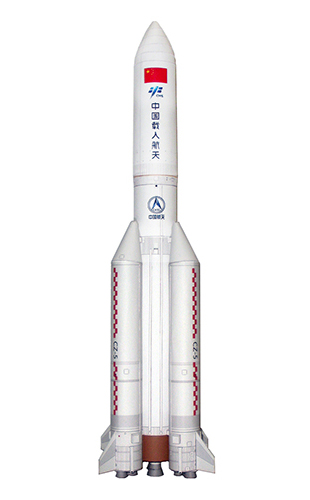
48..Angara - A5 Family -
The second Angara developed was the Angara A5 heavy lift launch vehicle, which consists of one
URM-1 core and four URM-1 boosters, a 3.6m URM-2 second stage, and an upper stage.
The first Angara - A5 test flight was launched on 23 December 2014. The second test flight was
launched on 14 December 2020 from Plesetsk. Angara A5 was the biggest Russian launcher to debut
since the Energia rocket for the Soviet Union's Buran space shuttle flew in the late 1980s.
There are other Angara - A5 variants that are being developed...A5 with the 5 meter fairing,
Angara - A5P (crew), Angara - A5V, Angara - A5V with the PTK NP spacecraft (crew).
Download Angara - A5
here
Download Angara - A5 - 5 Meter Fairing
here
Download Angara - A5P (crew)
here
Download Angara - A5V
here
Download AAngara - A5V with the PTK NP spacecraft (crew)
here
49..Retro Rocketships 3 -
1940's - 1960's style rockets with a "modern" flare as depicted in the movies.
This kit contains 12 more paper models to enjoy.
Download
50..Long March 5 -
Is a Chinese heavy-lift launch
vehicle developed by the China Academy of Launch Vehicle Technology (CALT). It is the first
Chinese launch vehicle designed to use exclusively non-hypergolic liquid propellants. It is the fifth
iteration of the Long March rocket family.
It is China's largest and widest rocket, capable of lifting 31,000 pounds (14,000
kg) to geosynchronous transfer orbit.
Download
51..Long March 5B-
The Long March-5B is a modified version of Long March-5 rocket and will be China's first 1.5-stage
large carrier rocket. It is the workhorse during the Tiangong space station construction.
Download
52
 Model.jpg) 53
53
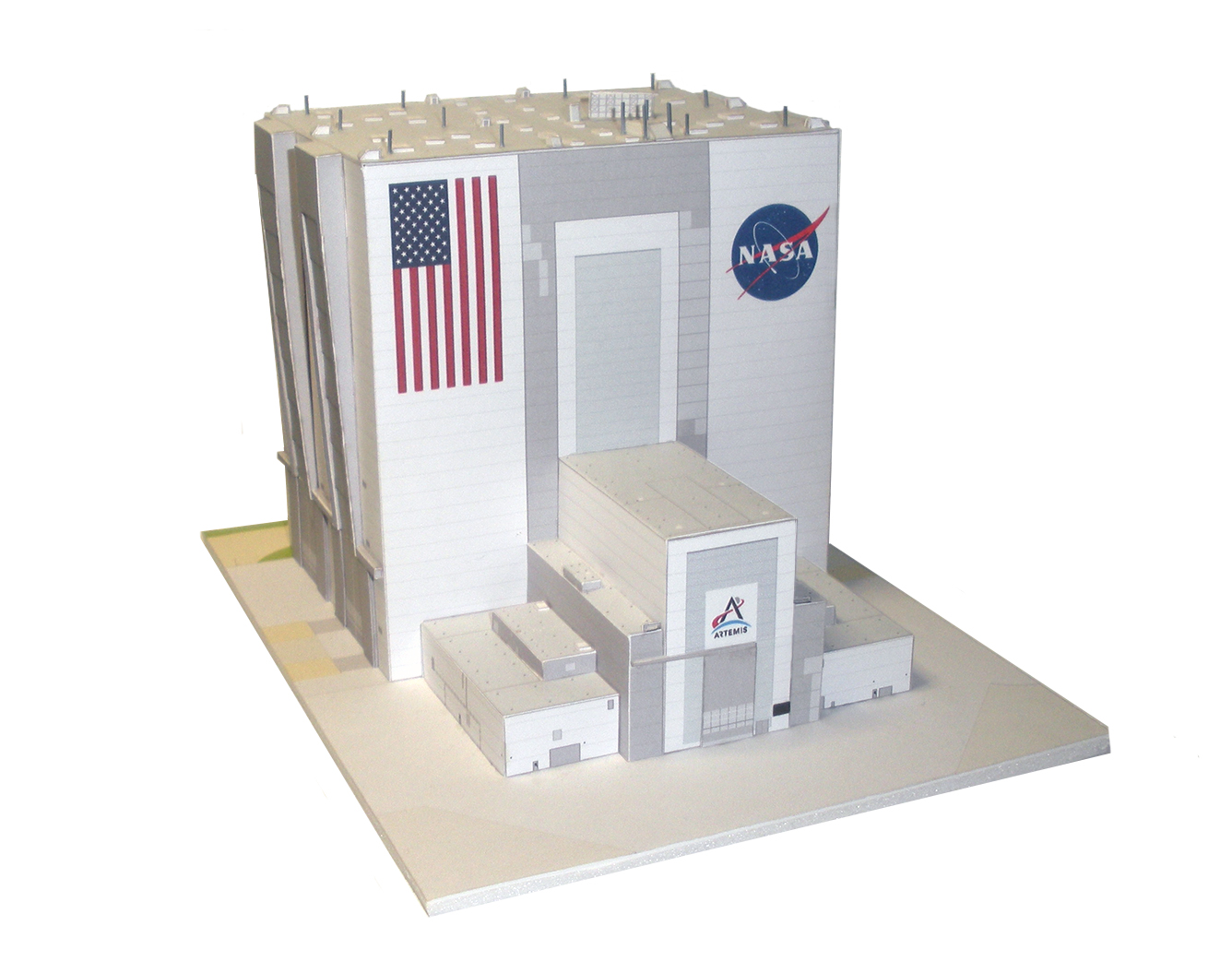 54
54
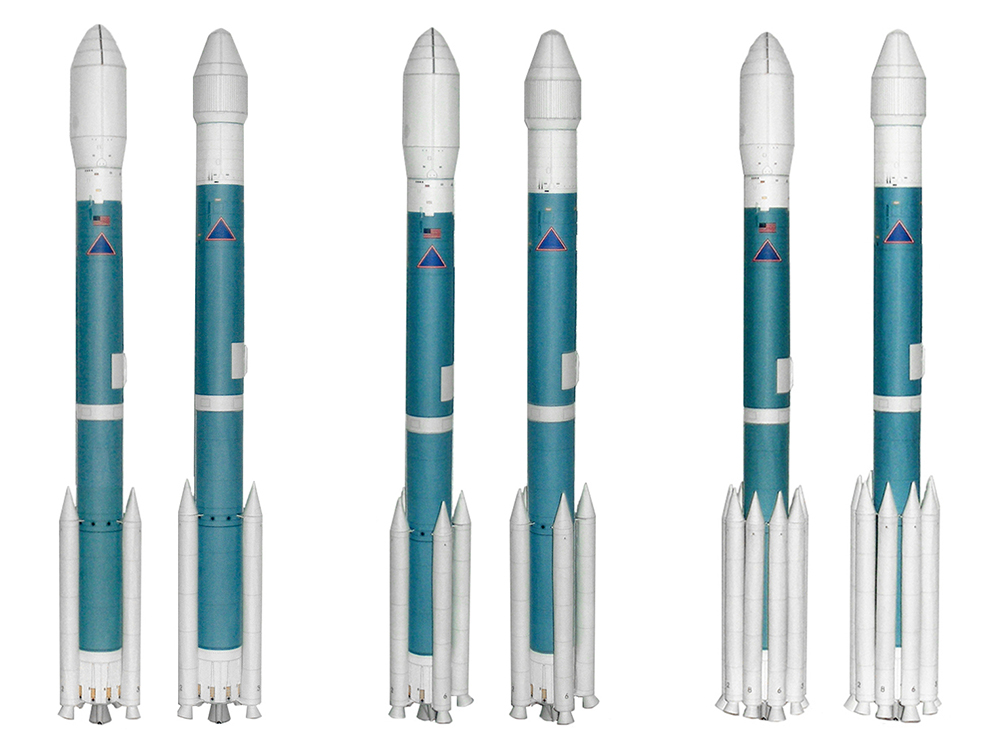 55
55
 Models.jpg)
52..Jielong-3 (Smart Dragon-3) -
is a solid fueled orbital launch vehicle developed by China Academy of Launch Vehicle Technology's subsidiary China
Rocket to launch up to 1500 kg to a 500 km altitude Sun-synchronous orbit. The rocket is 31 meters tall, 2.65
meters in diameter and weighs 145 metric tons. It is a solid fuel, 4 stage orbital rocket.
The maiden flight of Jielong 3 took place on December 9, 2022.
Download
53..KSC vehicle assembly building-Artemis -
Model of the KSC vehicle assembly building displaying the Artemis Logo.
Download
54..Delta II 7000 Series Launch Vehicles -
Built by the United Launch Alliance, had long carried the title
of the most reliable rocket in service. With a record 153 successful launches out of 155 flights.
The Delta II first launched on Valentine's Day, February 14, 1989, carrying the first full-scale GPS
satellite and kickstarting the navigation constellation that we continue to depend on decades later.
The Delta II rocket has propelled more than 80 communications satellites and 30 space probes to
destinations throughout the solar system. The first rover was launched to Mars on top of a Delta II in 1996,
followed by a set of twin rovers Spirit and Opportunity in 2003.
For its final mission (September 14, 2018), the Delta II delivered the Ice, Cloud and land Elevation Satellite-2 (aka ICESat-2), into a
polar orbit, where it will spend the next several years studying where ice is melting across the globe and how
quickly, to help forecast the climate-related changes yet to come.
The Delta II has earned its place in history as the most successful rocket the United States ever developed. It
also launched some cool science. From confirming the big bang, and studying a comet's tail, to launching
Kepler, which is the most prolific planet-hunter out there.
NOTE: Three variants of the Delta II 7000 series is available, the 7326, 7425 and the 7925.
Each comes with both the 9.5-foot and the 10-foot fairings and instructions.
7326 Download,
7425 Download,
7925 Download,
55..Delta II - Cartoon Style -
Thought this would be fun to build what I call the cartoon version of the Delta II.
Download
56
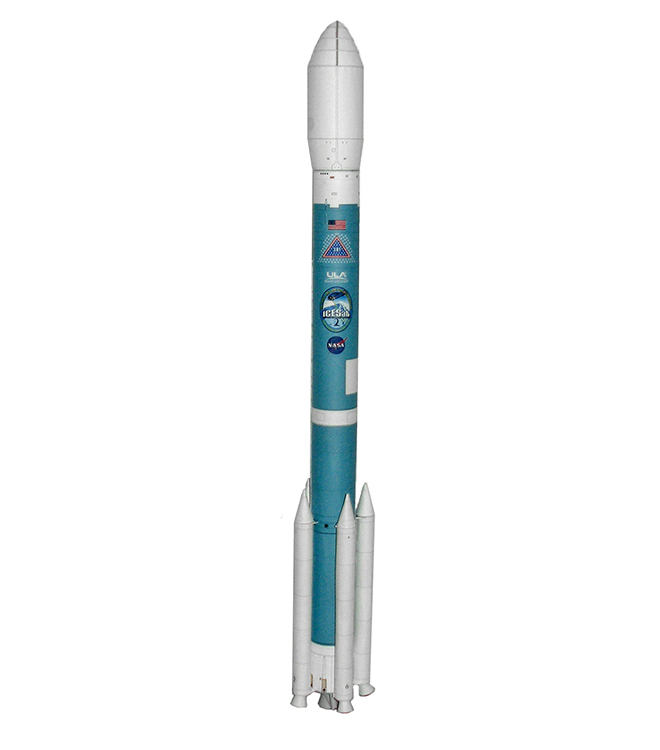 57
57
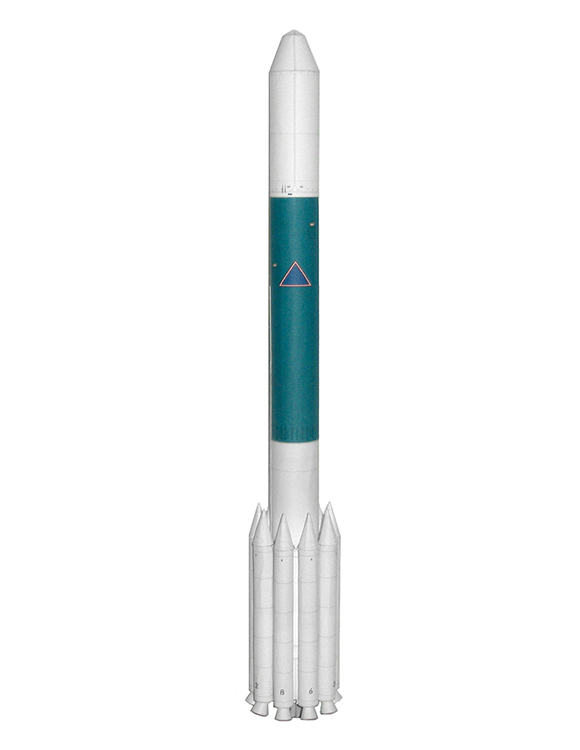 58
58
 Model.jpg) 59
59
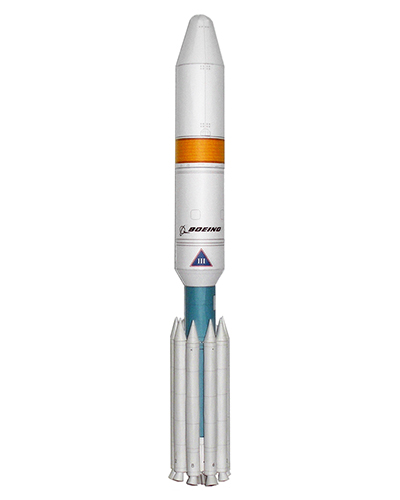 60
60
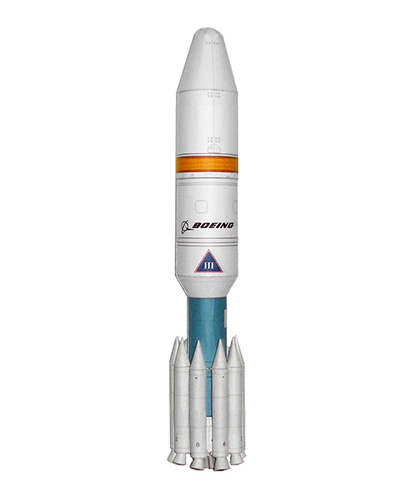
56..Delta II - Last Flight -
After three decades of service, the Delta II rocket is entering history.
The main payload on this flnal mission was NASA's Ice, Cloud, and Land ElevationSatellite-2, or ICESat-2,
In its 155 flights, the Delta II had only one complete failur eand one partial failure,
a 99 percent success rate that makes it one of the most reliable launch vehicles ever.
This final mission marks the end of an era on September 15, 2018.
Download
57..Delta II 3910 (3000 series) -
Although similar in basic design to the Delta 2000 Series, the Delta 3000 Series introduced larger, more powerful
Castor solid rocket boosters.The Delta 3000 combined the same first stage as 1000-series and 2000-series with upgraded Castor 4 solid
boosters and was the last Delta series to use the McDonnell Douglas Delta P second stage with TRW TR-
201 engine. Delta 3000 introduced the PAM (Payload Assist Module) / Star 48B solid-fueled kick motor, which was
later used as Delta II third stage. The Delta 3914 model was approved for launching United States government
payloads in May 1976 and was launched 13 times between 1975 and 1987.
Download
58..Ariane 6 launch Vehicle -
The inaugural flight of ESA's new Ariane 6 launcher in summer 2024 will mark the beginning of a new era of
autonomous European access to space. Ariane 6 will deliver increased payload performance, plus enhanced flexibility to launch a wide range
of missions with the same high reliability demonstrated throughout the Ariane program.
Ariane 6 has successfully launched on its maiden flight on Tuesday, July 9, 2024 from the Ensemble de
Lancement Ariane-4 (ELA-4) launch pad at the Guiana Space Centre in Kourou, French Guiana.
Download
59..Delta III 8930 -
Delta III was developed from the Delta II rocket. The new vehicle sported a modified first stage and a new,
more efficient upper stage. This led to Delta III having around double the payload capacity of Delta II.
However, the consecutive failures of the initial Delta IIIs, combined with the more advanced Delta IV program
and the continuing success of the Delta II, left the Delta III as an interim vehicle. The Delta III suffered two major failures and was
retired after just three launches (August 23, 2000).
Download
60..Delta III 8930 - Cartoon Style-
Thought this would be fun to build what I call the cartoon version of the Delta III.
Download
61
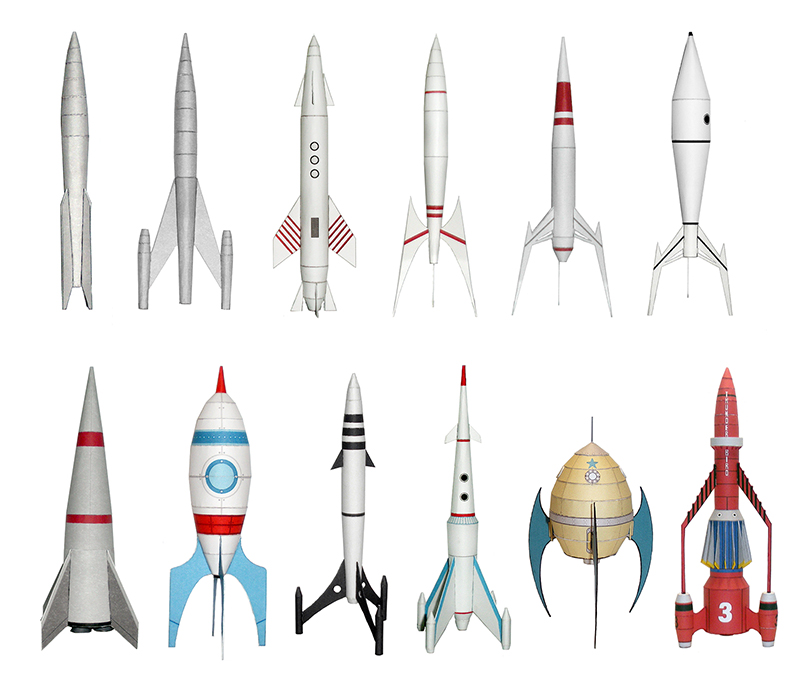 62
62
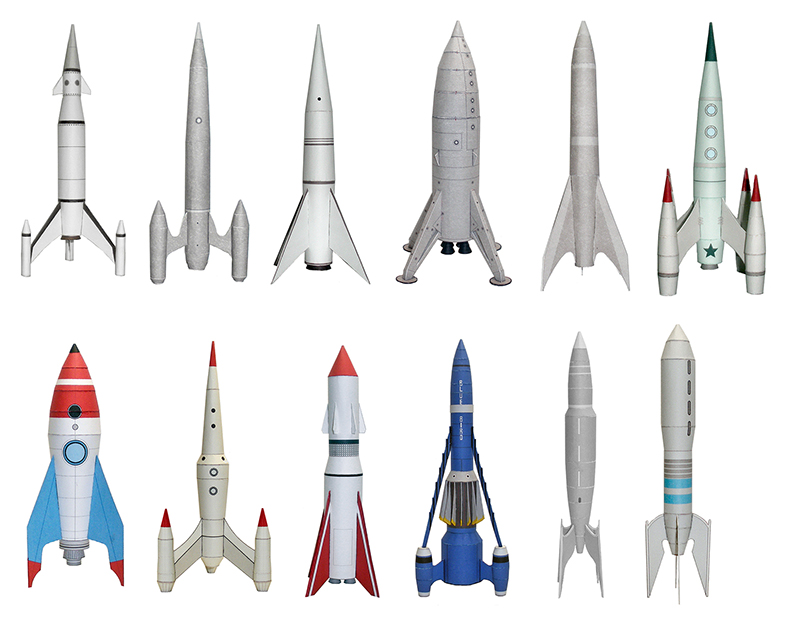 63
63
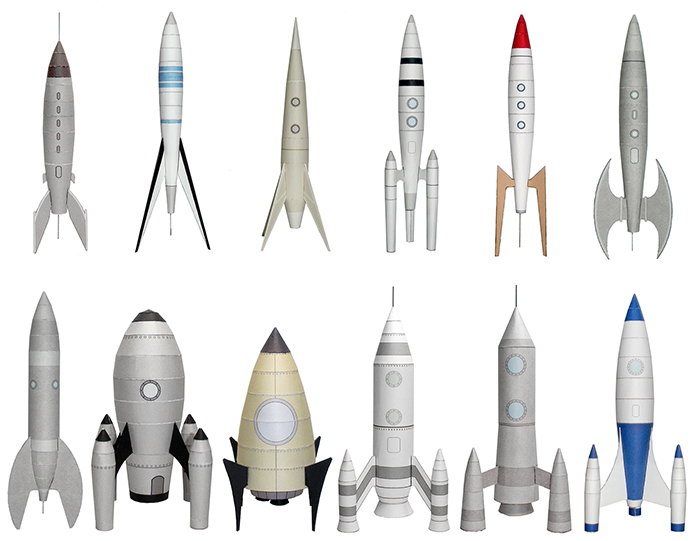 64
64
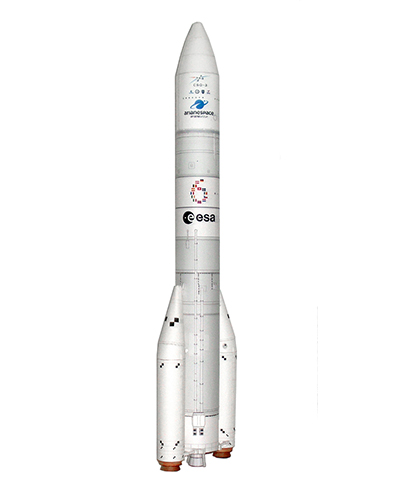
61..Retro Rocketships 4 -
1940's - 1960's style rockets with a "modern" flare as depicted in the movies.
This kit contains 13 more paper models to enjoy.
Download
62..Retro Rocketships 5 -
1940's - 1960's style rockets with a "modern" flare as depicted in the movies.
This kit contains 20 more paper models to enjoy.Some kits contain more than one
variant of the same model.
Download
63..Retro Rocketships 5 -
1940's - 1960's style rockets with a "modern" flare as depicted in the movies.
This kit contains 22 more paper models to enjoy.Some kits contain more than one
variant of the same model.
Download
64..Ariane 6 - First Commercial Flight -
On March 6, 2025, Ariane 6, operated by Arianespace, lifted off from Europe's Spaceport in
French Guiana carrying the CSO-3 satellite.
This is the first commercial mission which marks the beginning of the new European heavy-lift
launcher's commercial operations.
Download
65
 rocket Model.jpg) 66
66
 Model.jpg) 67
67
 Model.jpg)
65..Jupiter - C (Redstone#40) rocket -
The Jupiter-C was an American research and development vehicle developed from the Jupiter-A.
Jupiter-C was used for three uncrewed sub-orbital spaceflights in 1956 and 1957 to test
re-entry nosecones that were later to be deployed on the more advanced PGM-19 Jupiter mobile missile.
The third and last Jupiter C, bearing the letters "TX" (Redstone #40) was launched from
Cape Canaveral Launch Pad 6 on August 8, 1957. This Jupiter C also carried a
one-third scale Jupiter "ablative-type" nose cone, and marked an important "first" for rocketry.
After the launch, The nose cone was successfully recovered from the ocean, marking the first time an object
was recovered after flying in space. The nose cone was found to be in excellent condition,
proving that "ablative-type" nose cones were suitable for deployment aboard Jupiter missiles.
Download
66..Juno - 1 RS-29 (UE) Launch Vehicle -
Arguably one of the most significant space launch vehicles in the history of the U.S. space program,
the Juno I was a modified Redstone MRBM designed specifically to carry lightweight payloads into low-Earth orbit.
the Juno I was nearly identical to the Jupiter C research rocket from which it was adapted.
A Juno I bearing the letters "UE" successfully launched Explorer I, the first U.S. satellite,
from Cape Canaveral Launch Pad 26A at 10:48 p.m. EST on January 31, 1958.
Download
67..Juno - 1 RS-24 (UT) Launch Vehicle -
Juno I bearing the letters "UT" (Redstone #24) was launched from Cape Canaveral Launch Pad 5 on March
26, 1958. This Juno I successfully carried Explorer III into orbit.
Download